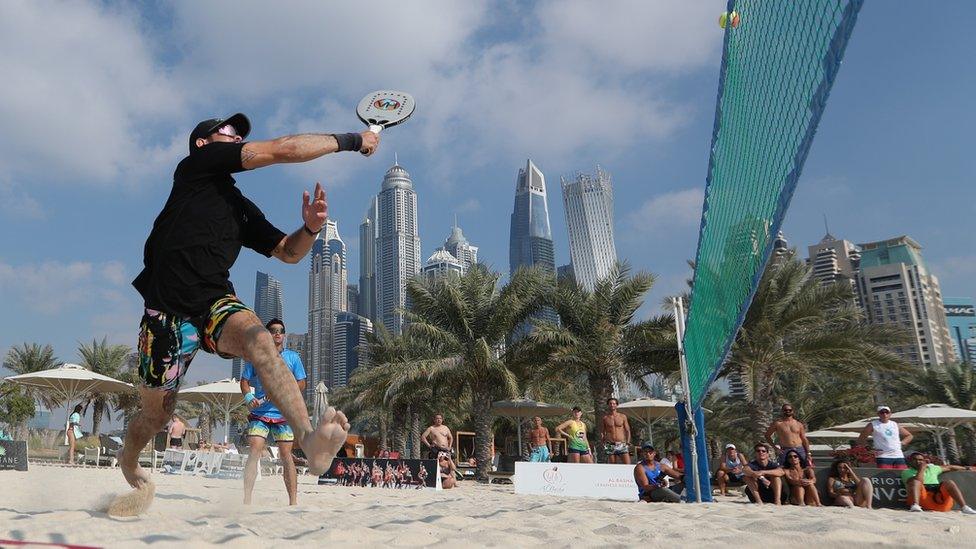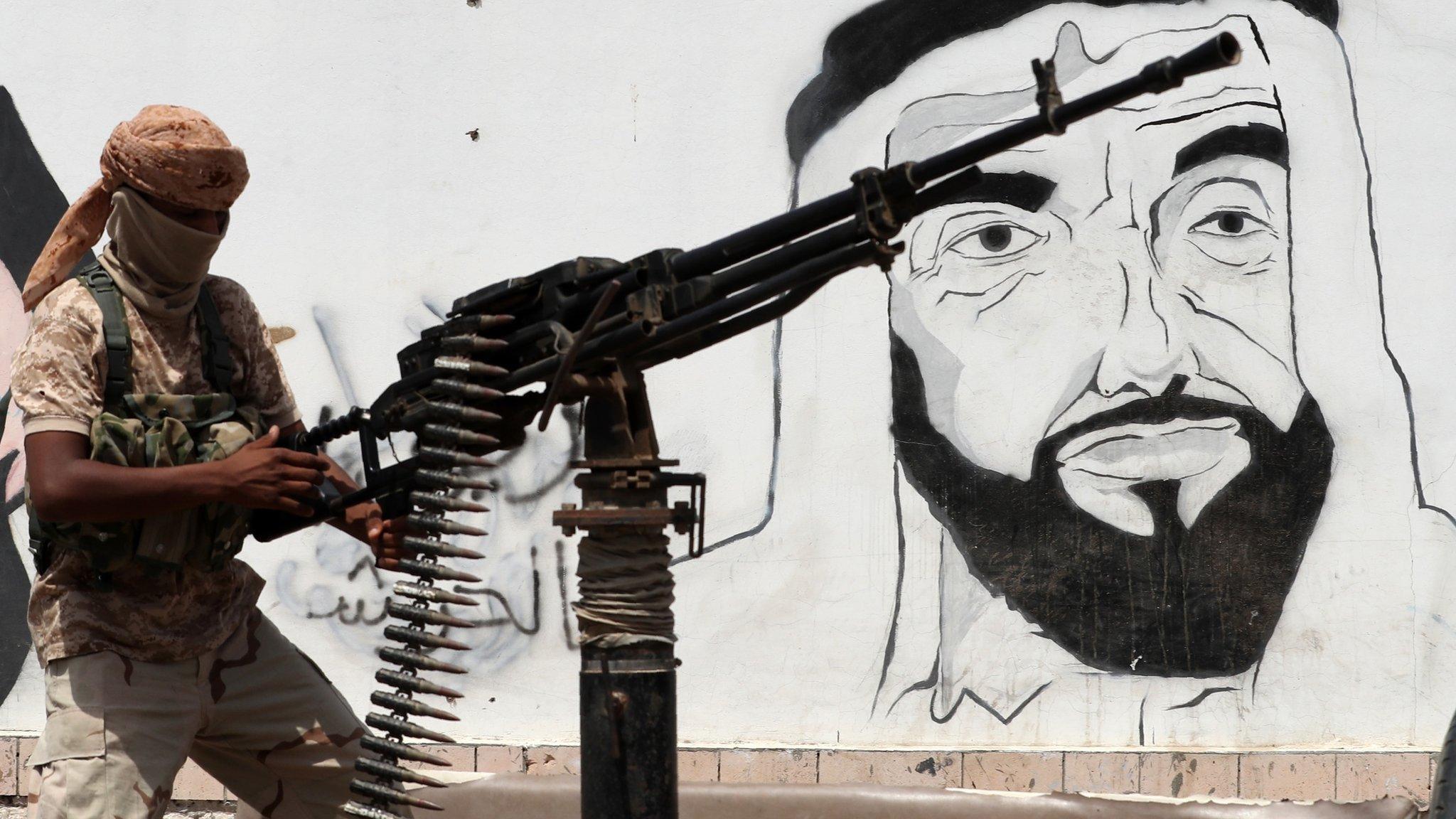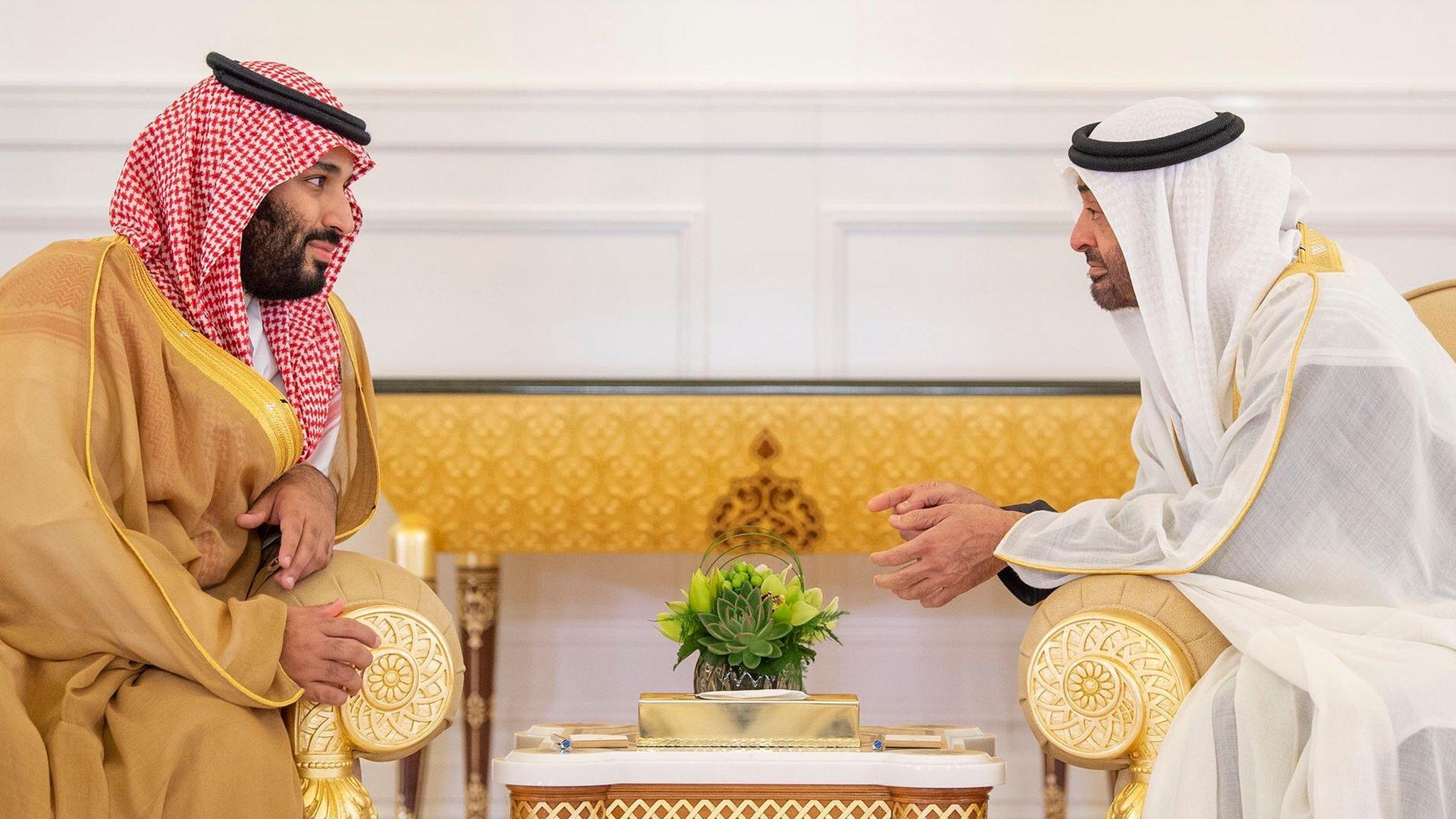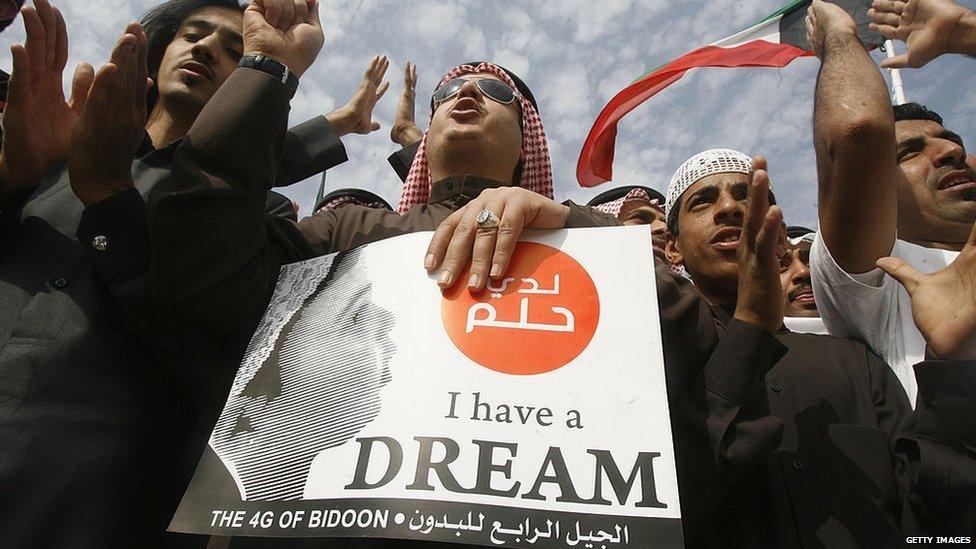UAE to offer citizenship to 'talented' foreigners
- Published

The UAE says it will grant citizenship to foreign residents for the first time, providing they add value to the Gulf state.
UAE Vice-President and Dubai ruler Sheikh Mohammed bin Rashid al Maktoum said those eligible would include investors, specialised talents, doctors, engineers and artists.
They and their families would be able to hold dual nationality, he said.
It is unlikely that any low-income workers will meet the strict criteria.
Sheikh Mohammed said the aim was to attract those who could "contribute to our development journey".
There is no application procedure; instead individuals would be nominated for citizenship by UAE royals or officials, he said. The UAE cabinet would then decide whether or not to approve them.
The move comes amid the coronavirus pandemic and a period of low oil prices, which have prompted tens of thousands of foreigners to leave the country.
The new system would allow specialised experts and foreign investors to establish deeper roots in the country, according to Abu Dhabi-based newspaper The National.
Allow X content?
This article contains content provided by X. We ask for your permission before anything is loaded, as they may be using cookies and other technologies. You may want to read X’s cookie policy, external and privacy policy, external before accepting. To view this content choose ‘accept and continue’.

The rise of the Gulf state as a financial and tourism centre has depended on expatriates, the BBC's Arab affairs editor Sebastian Usher says. They make up the majority of the resident population and more than 90% of the workforce.
Foreign workers usually have renewable visas that are valid for several years and are linked to employment.
Low-income labourers have also played a key role in building the economy, providing manpower for the construction, hospitality, retail and travel sectors, with their earnings often helping to support families back home.
Many of them have spent years in the country, but have no formal route to citizenship or permanent residency, and no access to social welfare benefits.
While low-income workers remain overlooked, the UAE has begun offering longer stays for certain categories of investor, student and professional.
In 2019 Sheikh Mohammed launched a "golden card" visa system offering 10-year residency to various professionals including doctors and scientists, plus high-achieving school students, as well as their families. Last year eligibility was extended to a wider array of people.
To be considered for the new citizenship scheme, investors would have to own property in the UAE, doctors would need to be specialised in areas seeing high demand, inventors would need to have had a patent approved by the UAE and creative people would need to be pioneers in their fields, according to a list published by the Wam news agency, external.
It was not immediately clear if new passport holders would be eligible for the UAE's public welfare system. The country spends billions of dollars on free education, healthcare, housing loans and grants for its estimated 1.4 million citizens.
Citizenship is not usually offered to foreigners in Gulf countries. It was usually only offered to the wives of Emirati men and the children of Emirati fathers. The children of Emirati mothers who are married to foreigners do not automatically get citizenship but must instead apply for it, a process that can take years.
(July 2019) Dubai: It's flash, it's brash, it's successful – but what's going on beneath the surface?
- Published23 September 2020

- Published12 November 2020

- Published5 January 2021

- Published13 January 2021
